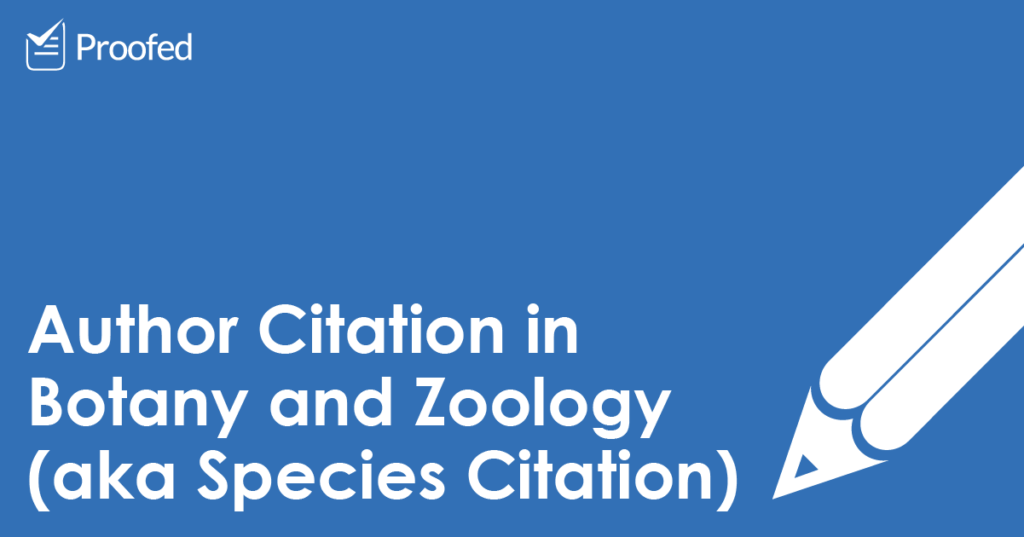Referencing is tricky at the best of times. But it can be especially confusing in subjects such as botany and zoology, where you may have to cite plant and animal species’ names. This is known as author citation, or sometimes “species citation,” and it works like this…
What Is Author Citation?
Author citation is used when discussing the taxonomy of different plants and animals. So if you name a species in your writing, you may need to cite its scientific name (i.e. Latin name) and the person who named it. This ensures clarity when two species or subspecies have a similar name. However, the format to use will depend on whether you’re citing a plant or an animal.
Author Citation in Botany
The full rules for author citations in botany are set out in the International Code of Nomenclature for algae, fungi, and plants. The basic format, however, includes the scientific name of the species and an abbreviated name of the person who named it. If a subspecies has a separate discoverer, moreover, the original discoverer should be identified in brackets.
For example, we could cite bulb-bearing water hemlock as follows:
Cicuta bulbifera L. Spreng. is known for its toxicity.
Here, we have three distinct elements for the citation:
- The scientific name of the species (Cicuta bulbifera)
- The original discoverer (“L.,” which stands for “Linnaeus”)
- And the discoverer of the subspecies (“Spreng.”)
The “Spreng.” here is short for “Kurt Polycarp Joachim Sprengel,” who named the subspecies. Many plants will simply require you to cite “L.,” but you can find abbreviations of other names via the International Plant Index.
Find this useful?
Subscribe to our newsletter and get writing tips from our editors straight to your inbox.
Author Citation in Zoology
The full rules for citing animal species are contained in the International Code of Zoological Nomenclature. The basic citation format uses the scientific name of the species, the surname of its discoverer, and the year it was discovered. For instance:
Few would describe Psychrolutes marcidus McCulloch, 1926 as beautiful. I consider myself an exception.
Here, we’ve cited the undeniably gorgeous blobfish using the following:
- Its scientific name (Psychrolutes marcidus)
- The surname of its discoverer (i.e., Allan Riverstone McCulloch)
- The year that the scientific name was first published
This allows us to clarify the species in question and credit its discoverer.
Summary: Author Citation in Botany and Zoology
Author citation allows scientists and taxonomists to cite the scientific names and discoverers of different plant and animal species. The exact rules depend on the subject area:
- In botany, cite the scientific name of the species and an abbreviated name of the person who named it (e.g., “Cicuta bulbifera L. Spreng.”).
- In zoology, cite the scientific name of the species, the surname of its discoverer, and the year it was discovered (e.g., “Psychrolutes marcidus McCulloch, 1926”).
And if you’d like help checking the references in your work, just let us know.
